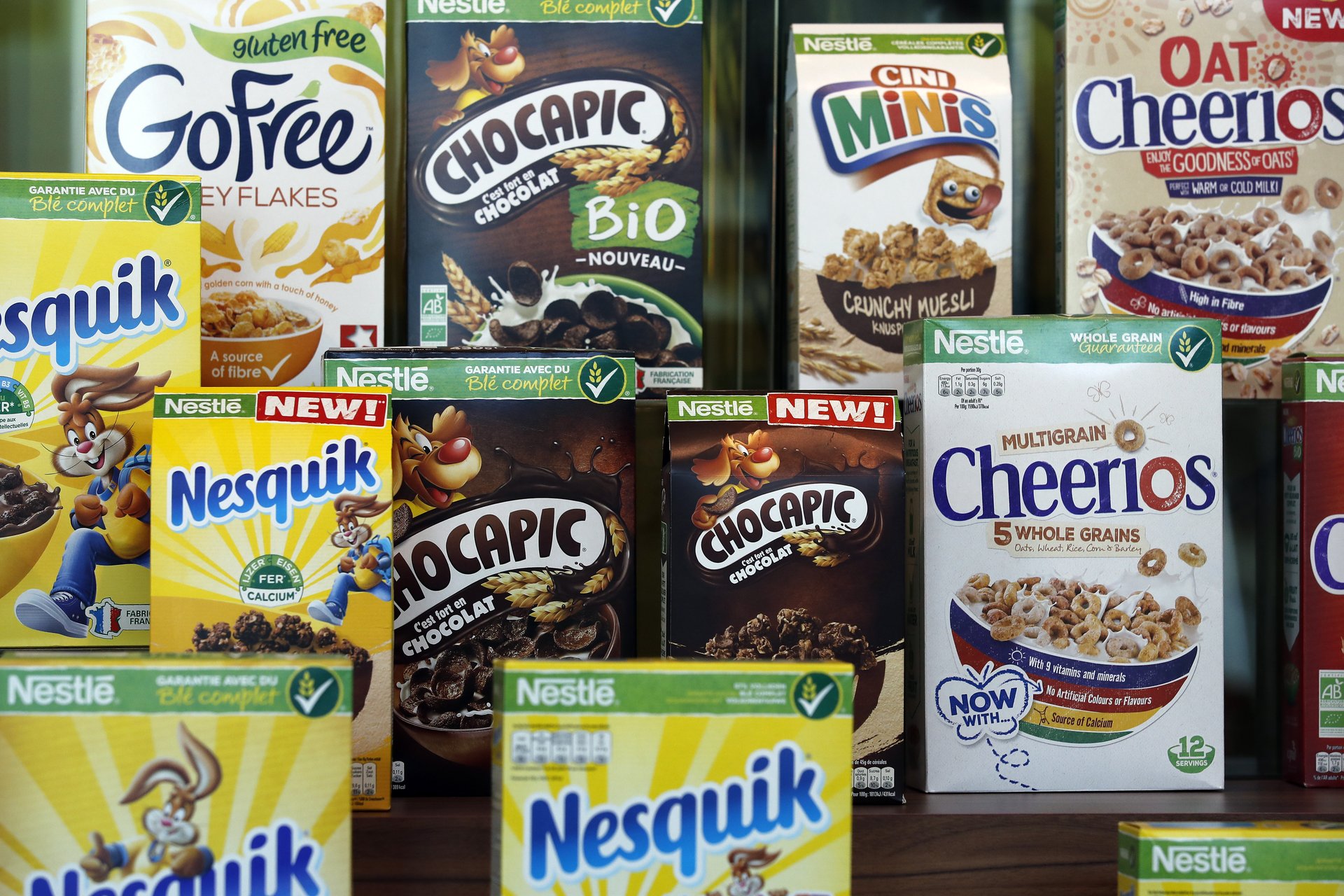Nestlé USA is dropping artificial food dyes in the U.S.
An industry-wide expulsion of the chemicals has been a years-long ambition of Health Secretary Robert F. Kennedy Jr.

Getty Images / Bloomberg
Nestlé USA announced Wednesday that it will completely eliminate synthetic food dyes from all its U.S. food and beverage products by the middle of 2026. The company said the shift will be finalized within a year and noted that over 90% of its current product lines are already free of artificial coloring.
Suggested Reading
The decision follows the Food and Drug Administration's (FDA) call in April for a phase-out of petroleum-based synthetic dyes due to their potential link to conditions like ADHD, obesity, and diabetes. Some studies have suggested a link, though that could also be related to the high sugar content of products that use them.
Related Content
The move has long been a goal of current Health Secretary Robert F. Kennedy Jr., but the process began during the Biden administration. Red No. 3 was banned in early January, citing a study that found it caused cancer in male rats. Companies were given until January 2028 to phase it out.
Kennedy has sought to ramp up efforts, however.
"For too long, some food producers have been feeding Americans petroleum-based chemicals without their knowledge or consent,” Kennedy said during April's announcement.
Shortly after taking office, he met with executives from many of the top processed food companies to further target the use of other artificial dyes. As part of the phase-out, FDA is revoking authorization for Citrus Red No. 2 and Orange B in the coming months, and is working with the industry to eliminate six more by the end of 2026. It has requested that companies pull Red No.3 in advance of the 2027-28 deadline previously required.
“We have a new epidemic of childhood diabetes, obesity, depression, and ADHD,” said FDA Commissioner Marty Makary in April. “Given the growing concerns of doctors and parents about the potential role of petroleum-based food dyes, we should not be taking risks and do everything possible to safeguard the health of our children.”
Nestlé joins a growing list of major food manufacturers taking note of the order. Conagra Brands also revealed on Wednesday that it will remove synthetic colors from its frozen food offerings by the end of 2025 and will stop supplying artificially colored items to K-12 schools by the 2026–2027 academic year.
"Our transition away from FD&C colors is just one aspect of our broader strategy to modernize our portfolio to align with consumer preferences," said Tom McGough, executive vice president and chief operating officer of Conagra Brands.
General Mills also announced last week that it will eliminate synthetic dyes from all of its U.S. retail products—including cereals and school-distributed foods—by summer 2026. That same day, Kraft Heinz committed to halting the release of any new products containing artificial colors and intends to remove synthetic dyes from existing offerings by the end of 2027, though some of its products underwent changes years ago: The iconic Kraft Mac & Cheese, for example, has been devoid of artificial colors, preservatives, and flavors since 2016.
Likewise, other companies such as W.K. Kellogg and Tyson Foods are also reformulating existing products and launching new ones without synthetic colorants as part of a broader clean-label trend reshaping the packaged food industry.
